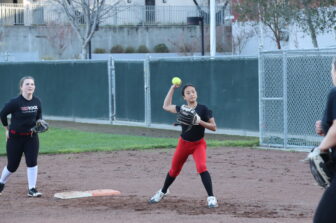
Esports and video games have often been thought of as a waste of time and mere hobbies, but as time progresses, the viability of making a career out of gaming is rapidly increasing. However, critics still debate whether esports are genuinely sports.
The Oxford Language Dictionary defines a sport as “an activity involving physical exertion and skill in which an individual or team competes against another or others for entertainment.” Esports cover all of these aspects. Using a controller or keyboard and mouse requires precision, quick reflexes and hand control. In addition, the competitive culture and hype that surrounds esports are comparable to, or even greater than, that of athletics.
Many parents discourage their children from gaming because they believe it is unimportant, but teens as young as 13 compete in esports. While the age requirement to join competitive esports is 16 in most games, there are many younger players participating.
When I was younger, my parents discouraged me from playing video games all day, but after I showed decent prowess, I was allowed to play longer. In “Fortnite,” I was able to place somewhat highly in the tournaments I would partake in, placing top 100 in events with tens of thousands of players participating. In “VALORANT,” a popular multiplayer game, I was playing in competitive lobbies with and against professionals. Turning gaming into a profession is not an unreachable accomplishment for people my age.
“Turning gaming into a profession is not an unreachable accomplishment”
But how difficult is it really to become a professional player? A good percentage of esports ability is talent. Similar to other professional sports, many people will put in thousands of hours to never see success, while others with natural talent will quickly surpass people without that ability.
According to Esports Grizzly, the average base salary of a professional gamer is $50,000 to $75,000, but the popular ones can make millions. Esports players also get income from tournament winnings, streams and partnerships. For example, Kyle “Bugha” Giersdorf won $3 million after placing first at the 2019 Fortnite World Cup.
To top it all off, some colleges are giving scholarships to gaming recruits. For example, the University of California, Berkeley, and the University of California, Irvine, are both highly ranked schools that are giving out scholarships for esports players. This shows that video games are not a waste of time. They can be quite beneficial for the future of players.
There are also prominent discussions about the potential implementation of esports into the Olympic Games. With the new addition of the Olympic Virtual Series that was held at the Olympics during the past summer games, it is possible that people will see more esports in the main Olympic Games in the future.



